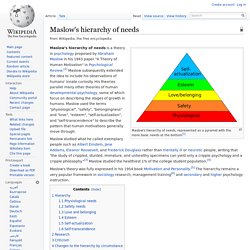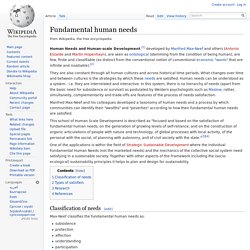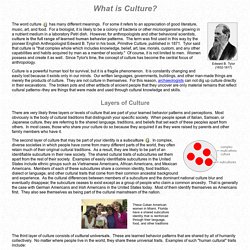

Sustainable Building Materials Segment 1. Sustainable Building Materials Segment 2. Maslow's hierarchy of needs. Maslow's hierarchy of needs, represented as a pyramid with the more basic needs at the bottom[1] Maslow's hierarchy of needs is a theory in psychology proposed by Abraham Maslow in his 1943 paper "A Theory of Human Motivation" in Psychological Review.[2] Maslow subsequently extended the idea to include his observations of humans' innate curiosity.

His theories parallel many other theories of human developmental psychology, some of which focus on describing the stages of growth in humans. Maslow used the terms "physiological", "safety", "belongingness" and "love", "esteem", "self-actualization", and "self-transcendence" to describe the pattern that human motivations generally move through.
Maslow's theory was fully expressed in his 1954 book Motivation and Personality.[5] The hierarchy remains a very popular framework in sociology research, management training[6] and secondary and higher psychology instruction. Fundamental human needs. Human Needs and Human-scale Development,[1] developed by Manfred Max-Neef and others (Antonio Elizalde and Martin Hopenhayn), are seen as ontological (stemming from the condition of being human), are few, finite and classifiable (as distinct from the conventional notion of conventional economic "wants" that are infinite and insatiable).[2] They are also constant through all human cultures and across historical time periods.

What changes over time and between cultures is the strategies by which these needs are satisfied. Human needs can be understood as a system - i.e. they are interrelated and interactive. In this system, there is no hierarchy of needs (apart from the basic need for subsistence or survival) as postulated by Western psychologists such as Maslow, rather, simultaneity, complementarity and trade-offs are features of the process of needs satisfaction. Classification of needs[edit] Human Culture: What is Culture? What is Culture?

The word culture has many different meanings. For some it refers to an appreciation of good literature, music, art, and food. For a biologist, it is likely to be a colony of bacteria or other microorganisms growing in a nutrient medium in a laboratory Petri dish. However, for anthropologists and other behavioral scientists, culture is the full range of learned human behavior patterns. The term was first used in this way by the pioneer English Anthropologist Edward B. Natural alternative building. Design and Technology.